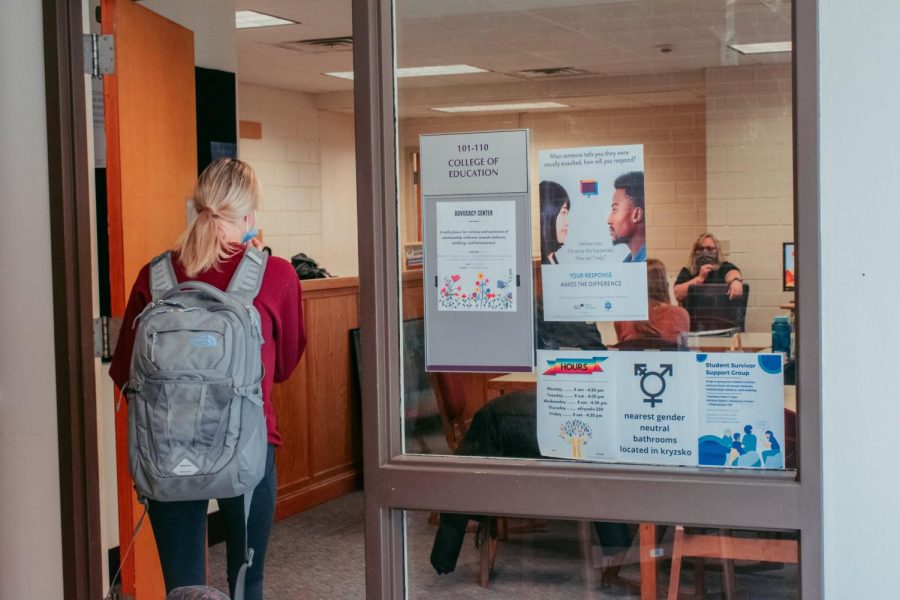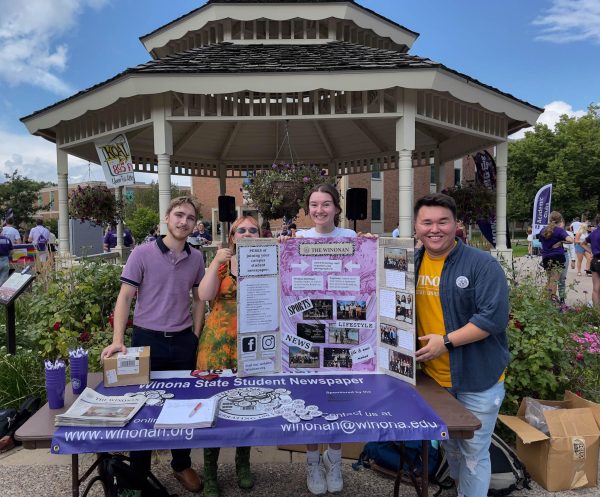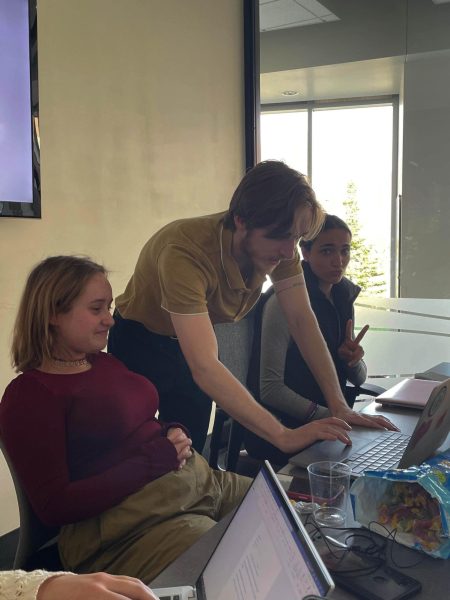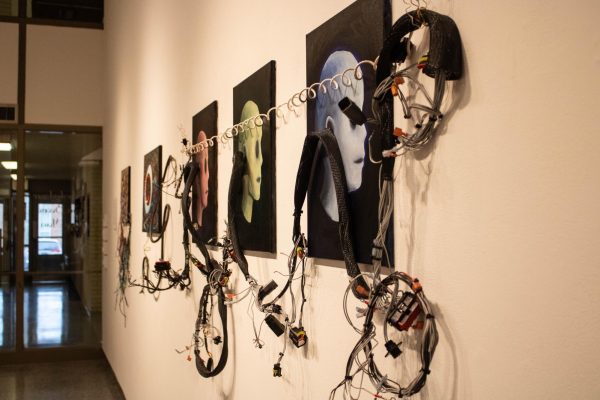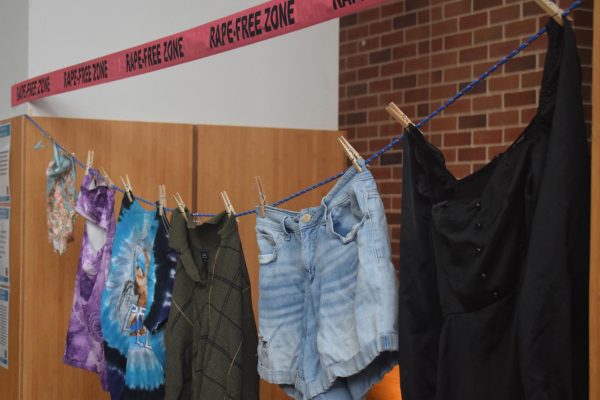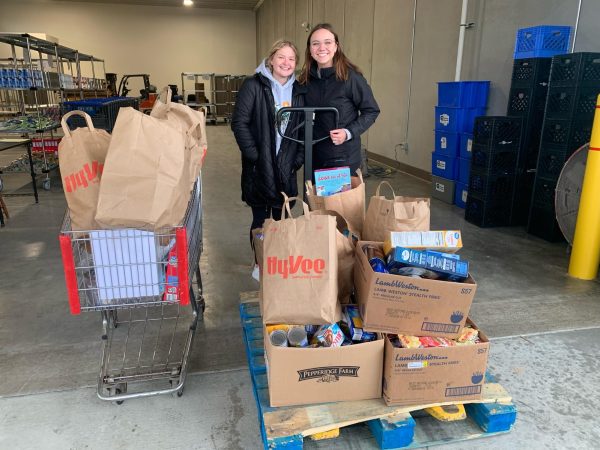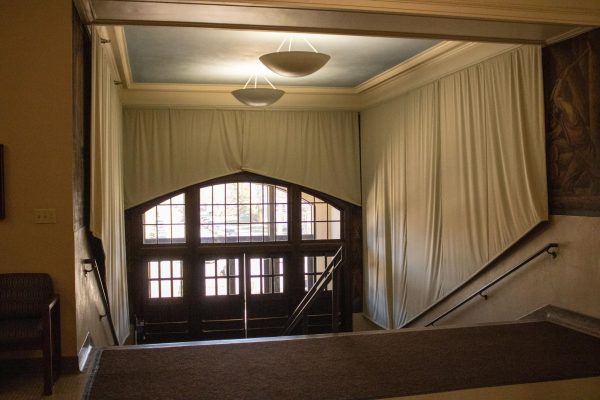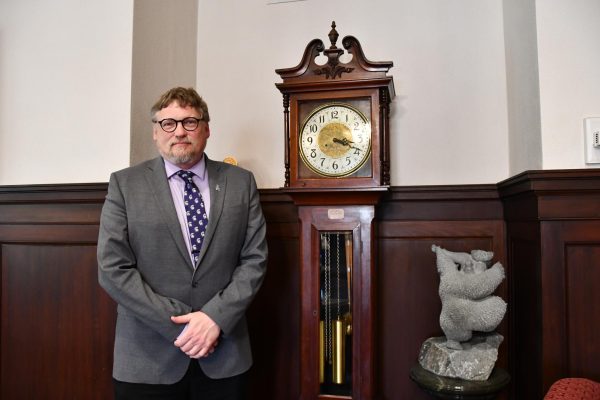Winona State’s first confidential advocate resigns
Archived photo from The Winonan’s Nov. 5 edition, when the OASIS Center held its first volunteer training. Winona State University’s first-ever Confidential Advocate, Jessica Schulz, resigned after just seven months, also leaving the new on-campus advocacy center closed at the start of the spring semester.
February 2, 2022
Winona State University’s first-ever Confidential Advocate, Jessica Schulz, resigned after just seven months, also leaving the new on-campus advocacy center closed at the start of the spring semester.
Schulz, who was hired this past summer, resigned after the fall semester at Winona State. The on-campus advocacy center, which had been newly named the OASIS Advocacy Center, will be unused until university plans for the space move forward.
The purpose of hiring a confidential advocate was to support students who have been sexually assaulted or violated, those who have or are experiencing an abusive relationship, any type of discrimination and more, confidentially. The OASIS Center was meant to be a safe space for victims and survivors as well as those who may want to support them.
Many students, faculty and staff members have been left wondering what is to come for the OASIS Center and the advocate position, including Student Senate members and those who are on the Sexual Violence Advisory Committee (SVAC).
Dr. Tamara Berg, a longtime Winona State professor and SVAC member, said she had requested an update on the situation several times, the latest request sent on Friday, Jan. 28, but had not heard back by the time of her speaking with The Winonan.
However, around 9 a.m. on Monday, Jan. 31, a roadblock to moving forward with plans to fill the advocacy position had been resolved, according to Associate Vice President of the Office of Equity and Inclusive Excellence, Jonathan Locust. The advocate position and the OASIS Center fall under the equity office.
“The SVAC made a suggestion that after Dr. Schulz leaves back to California, the university continue on services and contract out of the Advocacy Center of Winona (ACW),” Locust said. “Over the last, I would say few weeks, [we have been working on] getting a contract signed.”
The AWC’s Director, Crystal Hegge, will be fulfilling the confidential advocacy duties in place of Schulz after having worked on the proposal that suggested the collaboration, Locust said.
Locust explained several steps had to be taken to be able to write up an agreement to contract the confidential advocacy position out, including the approval of a money transfer to be able to pay Hegge.
As to why Schulz decided to resign from her position, Locust said she had mentioned wanting to move back to her home state, California, to be closer to family.
Schulz gave her exit statement at the end of the fall semester on Dec. 6, 2021, after Berg invited her to share her thoughts. The nearly three-page-long statement began by highlighting Schulz’s experience as a scholar of higher education, as well as her specialties in campus interpersonal violence, whiteness and critical consciousness, of which she has published work on. She then expressed that her statement may make some individuals uncomfortable.
“I want to start by asking that I be allowed to make this statement without interruption. Some individuals may feel uncomfortable and that is ok. Being uncomfortable is a good sign that you have work to do,” Schulz said.
Schulz then stated while all members of the SVAC board have passion for the work currently being done and that needs to be done, for some it is only in theory.
“The passion on SVAC is undeniable. It is clear that everyone on this committee wants to be involved at WSU. It is also clear that everyone wants to support victims and survivors, the extent of that commitment varies and for some individuals it is largely theoretical,” Schulz stated.
“This can be hard to envision, so as a comparison, as a white woman, it is easy for me to say I am opposed to racism and white supremacy, but those words mean nothing if I do not reflect on myself and my actions and make changes accordingly. Without the action, I would only theoretically oppose racism. Similarly, we can all say we want to support victims and survivors, however if our actions do not grow, change and align with the needs of those victims and survivors, our words mean nothing.”
Schulz shared she was originally contracted to work at Winona State for three years and planned to do so. Her son, too, had moved to Winona and was enrolled at the university. After just seven months, Schulz had several concerns which seem to have contributed to her years-early departure.
“During my seven months here, the siloing within and across campuses have been brought to my attention both by employees and through my experience,” Schulz stated.
Schulz partnered siloing, which means to isolate someone or something in a way that can obstruct communication with others, with the ‘decoupling’ she experienced at Winona State.
“More than siloing, much of the leadership that I have engaged with is engaged in a practice known as “decoupling” …Decoupling is a phenomenon that happens in schools and businesses, where one thing is said publicly… yet the actions of the institution do not fall in line,” Schulz stated. “For example, WSU hired an advocate and expressed public support, yet many changes are not being advanced to meet the needs of victims and survivors.”
Schulz’s statement came to a close with her recounting of one situation: a student came to speak with her at the OASIS Center and the details of the student’s situation were shared without their or Schulz’s permission. As the Confidential Advocate, this was problematic for several reasons.
Locust recognized there are different approaches among those on the SVAC and regarding the confidential advocate position.
“There’s multiple perspectives on the SVAC Committee: one of the perspectives I believe is more victim-centered… “[another perspective] is maybe more security-lensed,” Locust said.
Locust said this semester will be an opportunity to get student feedback about the collaboration between the ACW and the university and make improvements to meet student advocacy needs. Exact dates for when Hegge will begin working on campus and the OASIS Center opening up again are still unknown, until a contract is worked out.























































